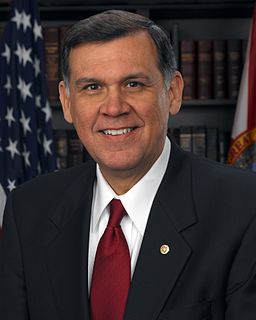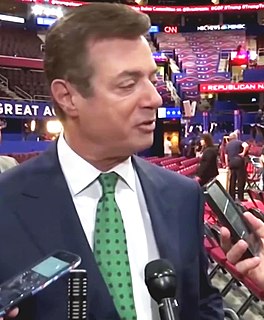A Quote by Peter R. Mansoor
General [James] Mattis has got a really intellectual mindset about how the United States should go about protecting its national security.
Related Quotes
National security is a really big problem for journalists, because no journalist worth his salt wants to endanger the national security, but the law talks about anyone who endangers the security of the United States is going to go to jail. So, here you are, especially in the Pentagon. Some guy tells you something. He says that's a national security matter. Well, you're supposed to tremble and get scared and it never, almost never means the security of the national government. More likely to mean the security or the personal happiness of the guy who is telling you something.
Remember, the conventional wisdom is, "Yeah, you can do this like [Donald] Trump has done it during the primaries, buuuut once you get to the general, it's not about national votes. It's about states! It's about swing states. It's about battleground states. And you've gotta have targeted expenditures, great ads running against your opponent in those swing states."
Actually, the phrase "national security" is barely used until the 1930s. And there's a reason. By then, the United States was beginning to become global. Before that the United States had been mostly a regional power - Britain was the biggest global power. After the Second World War, national security is everywhere, because we basically owned the world, so our security is threatened everywhere. Not just on our borders, but everywhere - so you have to have a thousand military bases around the world for "defense."
I think what you're going to get from President-elect [ Donald] Trump is all of his folks together - Rex Tillerson, James Mattis, John Kelly, CIA, Homeland Security, everyone that you would want in the room, making decisions about that particular document and treaties like that document as to how we're going move forward.
































